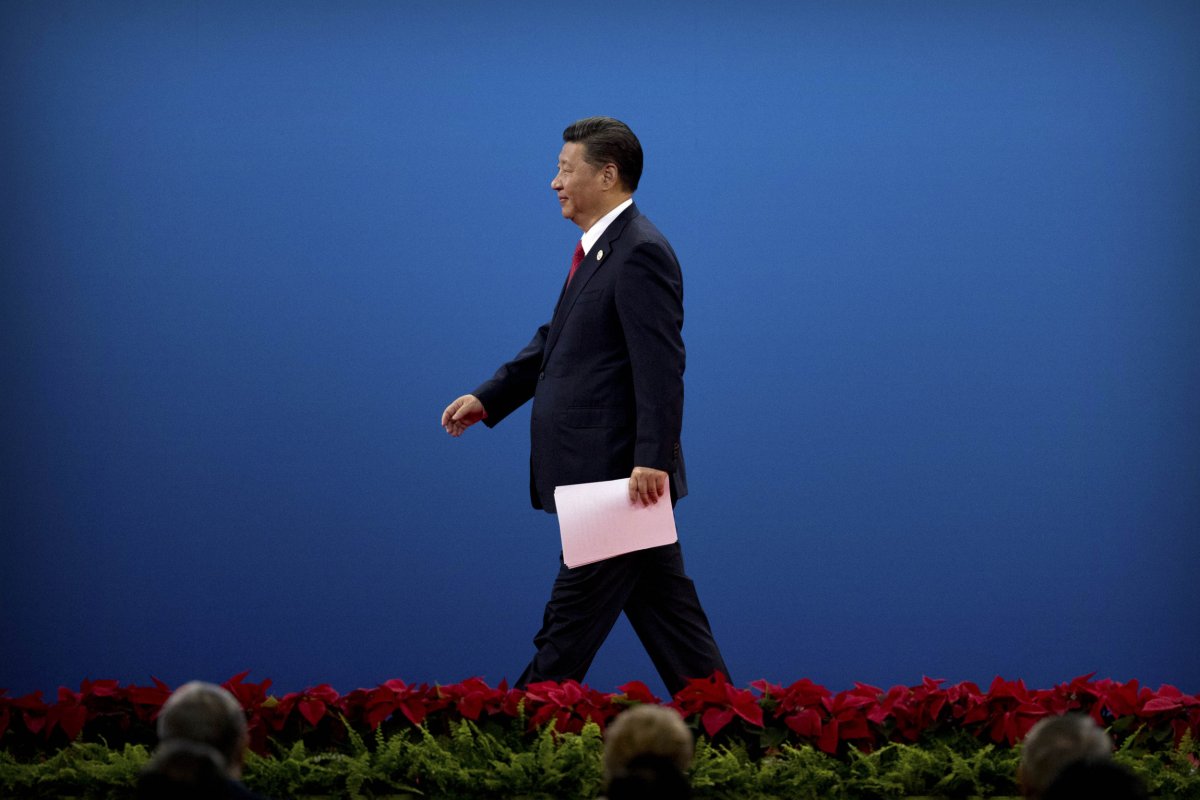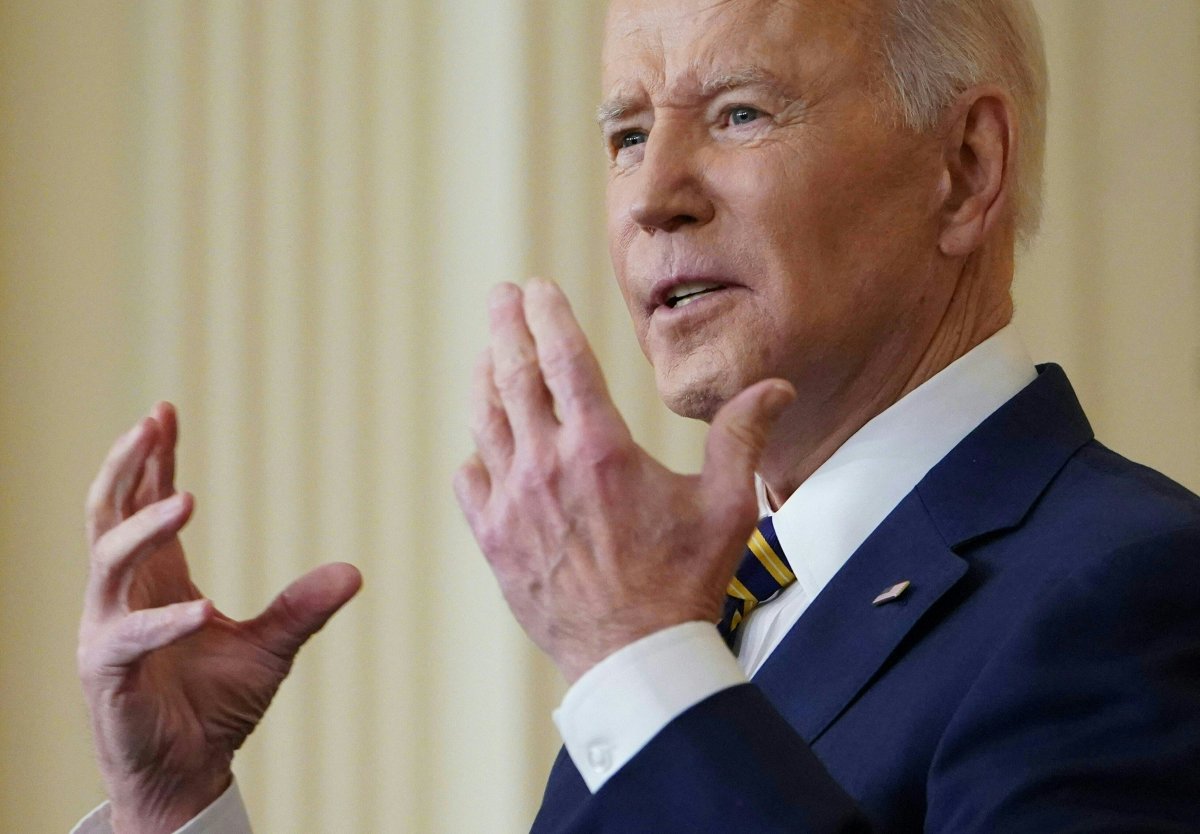The youth of Taiwan have growing faith in the United States, but this hasn't translated into trust in President Joe Biden, who marks one year in office on Thursday.
When Biden was inaugurated on January 20, 2021, he inherited a deeply divided country struggling to contain the COVID pandemic. Not much has changed. As the domestic debate continues about the successes and failures of his first 12 months, attention is also turning to Asia—where administration officials say the focus of American foreign policy now lies.
On January 12, Taiwan's CommonWealth Magazine published a survey that recorded overwhelming confidence in the U.S. among the nation's under-40s. Those aged 20 to 39 were most likely to prefer closer alignment with Washington, but no age group favored Beijing overall.
Across all ages, 58.8 percent of those surveyed believed the U.S. was likely to support Taipei militarily in the event of a conflict across the Taiwan Strait, the poll found. That number rose to nearly 70 percent in the 20-29 age group and fell to around 45 percent in the 50-59 group. About 54 percent of respondents said America could defend Taiwan if it chose to intervene, versus 38.7 percent who thought it could not.
The debate about American military and economic capabilities is one that's happening on both sides of the strait, as well as across the Pacific and Atlantic. Observers continue to disagree over whether America is in retreat. In Beijing, Chinese leader Xi Jinping believes the East is rising and the West is in decline. In Taipei, however, the demographic divergence remains when it comes to perceptions of the U.S.

The generation gap could be linked to trends in Taiwan's national identity. The island is still governed by the Republic of China government that retreated from the mainland in 1949, but underwent a transition from a one-party state to a successful democracy in the 1990s. Today, 60 percent identify as Taiwanese rather than as Chinese, according to the CommonWealth survey. Among younger respondents, that figure neared 80 percent, while around half of middle-aged respondents still identified as both. The more they identified with Taiwan, the more they leaned toward the U.S.
This trend was reflected in preferred postures toward China and America. Close to 47 percent believed Taiwan should maintain equal relations between China and the U.S. Thirty-one percent favored closer ties with Washington while also maintaining peaceful relations with Beijing. Just 6.4 percent preferred it the other way around. In reality, the island has little choice but to sway between the two rival powers.
Despite heightened tensions across the strait, the poll found that 63.7 percent of respondents weren't concerned about the possibility of war breaking out within a year, compared to 35.3 percent who were. Asked if China would resort to force in its quest to "unify" Taiwan with the mainland, 57.9 percent said no and 35.7 percent said yes. Again, optimism about the country's future was more pronounced among younger respondents.
China's crushing of democracy in Hong Kong, its economic coercion against Taipei, its expansionist tendencies in its surrounding waters and Xi's personal ambition to conquer Taiwan have all contributed to growing distrust of Beijing. However, despite the island's positive view of America, the sentiment hasn't translated into trust in its president.

No fewer than 57.7 percent of respondents told CommonWealth they didn't trust Biden, compared to 33.7 percent who did. He polled around 18 percentage points better than China's Xi, distrusted by 76.4 percent of Taiwanese, versus only 14.3 percent who trusted him. It's a harsh verdict on an American president who has overseen the elevation of U.S.-Taiwan relations to a historic high.
During his first year in office, Biden maintained the harder line toward China taken by his predecessor, Donald Trump. But his administration has also reframed the Taiwan Strait flashpoint from a matter of regional concern to an international issue, gaining at least nominal support from American allies in Europe and Asia. Meanwhile, with U.S. backing, Taipei has expanded unofficial ties with newfound friends in Central and Eastern Europe—Russia's former stomping ground, where China sees a shortcut to Brussels.
Taiwan responded positively to the Biden administration's supportive statements on the international stage, as well as the donation of millions of vaccine doses at the height of a local COVID-19 outbreak last summer. Just last month, Taiwan held a referendum that chose to keep its market open to American pork despite concerns over the additive ractopamine—presumably reflecting hopes that the island can forge stronger economic ties with its staunchest international backer.
The older generation in Taiwan remembers how Washington switched diplomatic allegiance from Taipei to Beijing in 1979. It recalls when, a few years earlier, the U.S. failed to stop the United Nations ejecting Taiwan in favor of China. In the same decade, the region watched as American troops left Vietnam, an event that sparked the first heated debates about U.S. decline before the end of the Cold War turned those discussions on their head.
Younger Taiwanese are often shown reminders of American fragility. Mistrust of democratic institutions among the average American is one of China's most popular talking points, and uncertainties about possible abandonment accompanied the U.S. withdrawal from Afghanistan last summer. Today, Taiwan might look at Ukraine's security and see parallels with its own. Yet the younger generations remain bullish in their choice to back America—in the hope that America will back them in return.
CommonWealth's telephone survey polled 1,070 citizens above the age of 20 across Taiwan between December 2 and 7, 2021.
Uncommon Knowledge
Newsweek is committed to challenging conventional wisdom and finding connections in the search for common ground.
Newsweek is committed to challenging conventional wisdom and finding connections in the search for common ground.
About the writer
John Feng is Newsweek's contributing editor for Asia based in Taichung, Taiwan. His focus is on East Asian politics. He ... Read more
To read how Newsweek uses AI as a newsroom tool, Click here.








